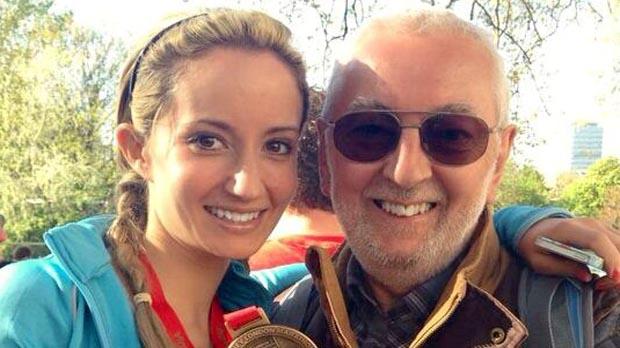
“I think it’s really important that people keep signing up to these type of trials to push research forward.”
This trial looked at whether vitamin B6 (pyridoxine) tablets could help relieve hand foot syndrome caused by the chemotherapy drug capecitabine.
Doctors commonly use the chemotherapy drug capecitabine (Xeloda) to treat advanced breast cancer and advanced bowel (colorectal) cancer. It is a tablet and generally does not cause severe side effects.
One side effect it may cause is hand foot syndrome (HFS) or palmar plantar syndrome. This is numbness, tingling, redness or soreness on the palms of your hands or soles of your feet. It is often mild and doesn’t cause too many problems. But it can be severe causing pain, blistering and peeling skin. If this happens, it can interrupt your everyday activities. It can also mean that the doctors have to reduce the dose of capecitabine they give you.
Some doctors prescribe pyridoxine to relieve HFS, as they believe it helps. But there has been no scientific evidence to support this.
The aim of this trial was to find out if pyridoxine did help relieve HFS and so help to prevent lowering of the dose of capecitabine.
The trial team found that pyridoxine (vitamin B6) appeared to reduce the rate of hand foot syndrome (HFS).
This was a randomised trial. The people taking part were put into 1 of 2 groups by a computer. Neither they nor their doctor could choose which group they were in.
People in group 1 had pyridoxine. People in group 2 had a dummy drug (placebo).
The trial team intended to recruit 270 people with breast cancer or bowel cancer. Unfortunately the trial didn’t recruit as well as they thought it would. They recruited a total of 106 people, with 53 people in each group.
After 12 weeks of treatment, the researchers looked at how many people had needed to have a dose reduction of capecitabine and how many had hand foot syndrome.
The number of people who didn’t have their dose of capecitabine reduced was
The number of people who had any sign of hand foot syndrome was
The number of people who had the worst case of hand foot syndrome was
The trial team concluded that based on this small group of people it appeared that pyridoxine reduced the rate of hand foot syndrome. And fewer people taking pyridoxine needed to have their dose of chemotherapy lowered because of side effects.
We have based this summary on information from the team who ran the trial. The information they sent us has been reviewed by independent specialists ( ) but may not have been published in a medical journal. The figures we quote above were provided by the trial team. We have not analysed the data ourselves.
) but may not have been published in a medical journal. The figures we quote above were provided by the trial team. We have not analysed the data ourselves.
Please note: In order to join a trial you will need to discuss it with your doctor, unless otherwise specified.
Dr Pippa Corrie
Addenbrookes NHS Trust
National Institute for Health Research Cancer Research Network (NCRN)
If you have questions about the trial please contact our cancer information nurses
Freephone 0808 800 4040

“I think it’s really important that people keep signing up to these type of trials to push research forward.”